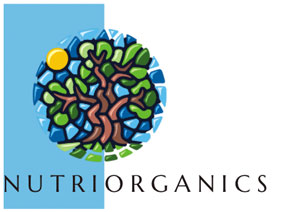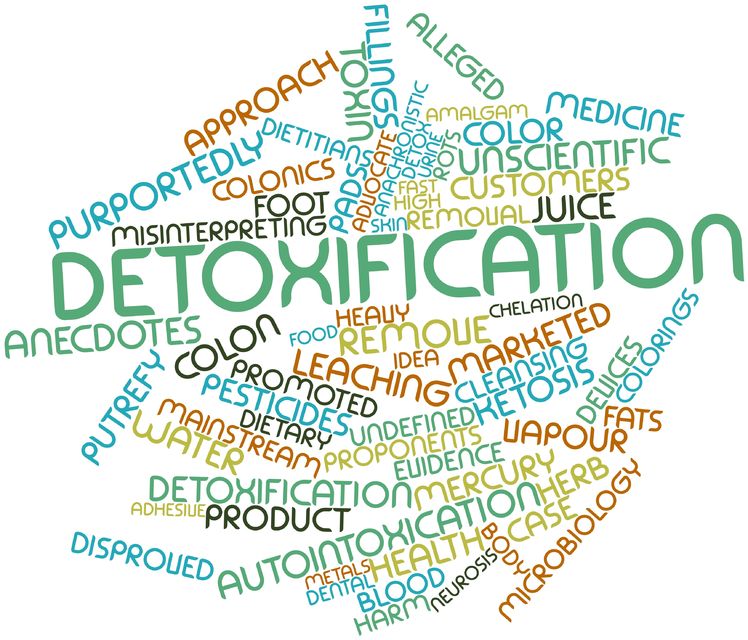The effects of toxin build-up
Did you know that toxic build-up in your body is not only bad for your health, it can also place a strain on your immune system, drain your energy levels and even create a barrier to weight loss?
When toxins have accumulated over time, as a result of a contaminated diet and polluted environment, our systems can become sluggish. Everything from digestion and nutrient absorption, to lymph activity and hormone function (such as the thyroid hormones) can be affected. This, in turn, can slow down your metabolism, cause weight gain and lead to ill-health.
Your body's natural cleanse and detox systems
Avoiding toxins is impossible in this day and age, so how can you help to keep your toxic load as low as possible?
Provided you are getting what you need in terms of 'fuel' from the right foods, and avoiding too many unhealthy lifestyle choices which could place your detox organs and systems under strain (such as smoking and drinking), your body is well-equipped to eliminate harmful wastes and toxins.
For instance, the liver (the body's chief detoxification organ) is able to detoxify a wide range of toxic substances. Every toxin you are exposed to, whether it is something you've eaten, inhaled or touched, will arrive at your liver. It detoxifies these substances by altering their structure, making them less toxic or more easily excreted. Inside the liver, special enzyme systems are capable of breaking down (metabolising) drugs, chemicals, hormones, pesticides and other types of toxins.
The majority of chemicals entering the body are fat-soluble. This means that they can be stored in fatty tissues such as the brain, cell membranes and our body fat stores. It is the liver's job to convert these toxins into water-soluble chemicals, so that they can be excreted in watery fluids like urine, bile and sweat.
However, the liver gets a lot of help from other detox organs and systems, including the digestive system (and intestines, more particularly), the urinary system, the lymphatic system, the spleen, the gallbladder, the lungs and the skin. None of these work in isolation - they are all intimately linked and depend on each other. If one detox system is overworked or under strain, this will place additional stress on other systems. If this occurs, for example because the systems become overwhelmed with toxins, they can enter the bloodstream and organs. It is in these circumstances that your body can use a little cleanse and detox support!
Cleanse and detox support
Whether you feel that your body is in dire need of a 'spring clean' or are simply looking for an overall health boost, regularly undertaking a full body cleanse and detox programme is now recommended by most natural health practitioners as a good way to give your body a helping hand to clear away harmful substances.
A good programme can help to improve your well-being, energy levels and should leave you feeling lighter, brighter and healthier than you've felt for a long time.
Some of the best detox essentials
A good diet is one the most (if not the most) important factor in reducing your body's toxic load. Reducing your intake of processed and other acid-forming foods aids the detox process, but it is also important to make good dietary choices at every meal. Below are some of the best detox foods around - must-have detox diet essentials...
Ginger
Include plenty of raw ginger in your detox diet, especially in fresh juices. It is high in antioxidants and great for the digestive system, helping to fight the effects of fatty foods and alcohol.
Garlic
Raw garlic not only adds flavour to meals, it also contains a chemical called allicin which helps to fight against toxins.
Beetroot
Beetroot has recently been hailed as the new detox "superfood", as it's packed with antioxidants (like vitamin C), alkalising elements, vitamins and minerals (including iron and magnesium).
Dietary fibre
Fibre is more than just 'roughage'. High quality dietary fibre, from natural whole foods like fruit, vegetables and whole grains, can help to cleanse the colon; keep the digestive tract clean and working efficiently; and even bind with toxins in the gut, sweeping them out of the body (soluble fibre). In particular, fibre in the form of psyllium husks (the husks of the seeds of the plantain plant) is renowned for its ability to cleanse the colon. This fibre swells when mixed with water in the digestive system, becoming a gel-like substance that builds up stool and softens it, helping move it along the intestinal tract and eliminate toxins.
Green tea
Green tea, also known as Chinese tea, is a rich source of antioxidant polyphenols. These are thought to offer support for the liver, against the harmful effects of alcohol, cigarette smoke and other toxins.
Wheatgrass
Eating an acidic diet (high in refined foods, sugar, dairy, meat and not enough fruit and vegetables), can lead to poor health and inflammation in the body. Wheatgrass is rich not only in enzymes, antioxidants, vitamins and minerals, but also potent alkalising elements that support the body's natural cleanse and detox processes.

